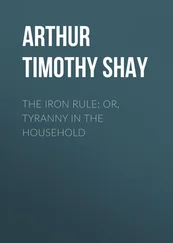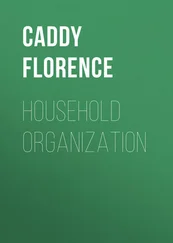Judith Tarr - Household Gods
Здесь есть возможность читать онлайн «Judith Tarr - Household Gods» весь текст электронной книги совершенно бесплатно (целиком полную версию без сокращений). В некоторых случаях можно слушать аудио, скачать через торрент в формате fb2 и присутствует краткое содержание. Жанр: Фэнтези, на английском языке. Описание произведения, (предисловие) а так же отзывы посетителей доступны на портале библиотеки ЛибКат.
- Название:Household Gods
- Автор:
- Жанр:
- Год:неизвестен
- ISBN:нет данных
- Рейтинг книги:5 / 5. Голосов: 1
-
Избранное:Добавить в избранное
- Отзывы:
-
Ваша оценка:
- 100
- 1
- 2
- 3
- 4
- 5
Household Gods: краткое содержание, описание и аннотация
Предлагаем к чтению аннотацию, описание, краткое содержание или предисловие (зависит от того, что написал сам автор книги «Household Gods»). Если вы не нашли необходимую информацию о книге — напишите в комментариях, мы постараемся отыскать её.
Household Gods — читать онлайн бесплатно полную книгу (весь текст) целиком
Ниже представлен текст книги, разбитый по страницам. Система сохранения места последней прочитанной страницы, позволяет с удобством читать онлайн бесплатно книгу «Household Gods», без необходимости каждый раз заново искать на чём Вы остановились. Поставьте закладку, и сможете в любой момент перейти на страницу, на которой закончили чтение.
Интервал:
Закладка:
The last drawer, on the bottom, opened less easily than the rest. She had to set her back to it and pull, and hope she didn’t break something. When it gave way at last, she found the drawer crammed full of rags. Dustrags? Cleaning rags? She frowned. They were all clean, but the stains on the ones she pulled out were hard to mistake. Even modern detergents couldn’t always remove the stain of blood.
Bandages, then? Yes, she thought, in a way. Clearly, the Romans had never heard of tampons.
That could be a nuisance. She hadn’t thought about such things when she’d prayed to Liber and Libera to snatch her out of her own place and time. She should have asked them for a stopover at a drugstore. The things she could have brought with her if she had -
Obviously, that wasn’t how it worked. She told herself she didn’t care. She didn’t. She hadn’t prayed for physical comfort or material wealth. She’d asked for equality; for justice. For a world that gave a woman a fairer chance, and a better quality of life. They’d brought her here, hadn’t they? Then they must have given her the rest, too. If a price came with it, if she had to resort to rags for a week a month, then that was a price worth paying. After all, she couldn’t be the only one. Every other woman in this place — in Carnuntum — had to do the same. That was equality, after a fashion.
She couldn’t help thinking that it would be even more equal if the men had to do it, too. But she doubted even gods had the power to change the world as profoundly as that.
She pulled the blue tunic off over her head and picked up the brown, which seemed the cleanest of the lot. Before she put it on, she paused, looking down at herself. It felt strange, like being a voyeur, but she was inside the body she stared at.
It wasn’t a bad body. The Nicole who’d lived in West Hills would have killed to be as slim as this. The breasts did sag a bit, more than her own — her others — had. They were a little larger, too. No bras here, or none that she’d found. The nipples were wide and dark, with the look she’d come to know in her other body, that with the stretch marks on her belly told her that this body had borne at least one child.
She stood briefly frozen. Children? That meant -
No. If she’d had a husband, she would have found his clothes and belongings in the room, and him in her bed, too. This was the room of a woman who lived, or at least slept, alone.
Her mouth twisted. Bless Liber and Libera. After all she’d gone through with Frank, the last thing she either wanted or needed was a husband.
She shrugged into the brown tunic, stooped and picked up the sandals, pulled and wiggled them onto her feet. The straps puzzled her a bit, with their bronze eyelets, but her hands seemed to know how they went. After a few moments she stopped trying to guide them and let them do what they wanted to do. The fingers worked deftly, lacing and fastening.
Then at last they were on and she was standing straight, ready to face the world. “Ready or not,” she said to it, “here I come.”
Unbarring the double door was easy, but it didn’t open. What to do next? When she pushed against the handles, nothing happened. She pushed harder. Nothing. With a hiss of annoyance, she braced her back and pulled. The doors flew inward, nearly sweeping her off her feet. They were not hinged, she saw, but hung on pegs that fit into holes in the lintel and sill. How odd. How unusual. How — primitive? No. Just different.
This whole world would be different, more differences than she had ever known. She had to stop, to swallow the surge of panic. Culture shock didn’t begin to describe it. She groped for the remnants of her former dizzy joy. Most of what was left was simply dizziness. It was still better than the black horrors. She was glad to be here. She had prayed to be here. The gods had given her the language and, it seemed, a little body-knowledge. Surely they’d have given her enough other skills to get by.
The hall was only a hall, if rather dark: no electric lights here. One or two doorways opened on either side. Only hers had an actual door. In the others, curtains hung from rod-and-ring arrangements, like shower curtains in a bathtub — if shower curtains could be made of burlap.
People might be sleeping behind those curtains, or eating or using the chamberpot or doing whatever people did in curtained rooms in the morning. Nicole didn’t want to look in — to disturb them, she told herself. But some of it was fear and a kind of crippling shyness. She wasn’t ready to see what those people looked like.
At the end of the short hallway, wooden stairs descended in unlit gloom. She drew a breath so deep, she coughed — the stink of this whole world was concentrated here, overlaid with a sharp tenement reek — and squared her shoulders and girded her loins, metaphorically speaking. “Let’s see what we’ve got,” she said a little breathlessly, and set foot on the topmost step.
The stairs opened into an expanse of near-darkness. It felt wider and more open than the area above, and the air, as a consequence, was easier to breathe. It had a new sharpness here, a pungency that wasn’t unpleasant. It reminded her of a student cafe at Indiana, dark and shut up and quiet in the morning before anyone came to open it.
She groped her way along the wall to a glimmer of light that seemed to mark a line of shuttered windows. Shutters, yes. She worked the rawhide lashings free and flung them back, blinking in the sudden glare of daylight.
As she turned back to the room, she clapped her hands in delight that was only about three-quarters forced. “A restaurant!” she said. How wonderful of Liber and Libera — not only a nice body, no husband, and a simpler world, but a direct line to the best food, too. No more frozen dinners. No more Lean Cuisine. No more Thrifty Gourmet, not ever again.
The room was wider than it was long, and higher than the rooms and hallway above. It held half a dozen tables, no two of them identical — all handmade by human beings, no soulless mass production here — and a small forest of similarly various stools. Toward the rear was a long counter that looked like something out of Rancho Santa Fe: it was made of stones cemented together, with a flat slate top. Arranged on it in rows were baskets of things to nibble on: walnuts, raisins, prunes, faintly wilted green onions.
Nicole let the joy well up again, till she laughed with it. “No Fritos, no Doritos, no Cheetos, no Pringles.” It was a litany of delight.
Set into the countertop were several round wooden lids with iron handles. She passed them by to explore what must, here, do duty for stove and microwave. Just past the wooden lids was an iron griddle over an open fireplace set into the counter. Another fireplace opened farther down. A complicated arrangement of chains hung over it. From several hung a row of pots on hooks.
There didn’t seem to be a chimney. There was a hole in the roof above each fireplace — so that was why the second floor was set back like that, this must be like a walled and covered porch — and the window was open, un-glazed and unscreened. That was all the venting there seemed to be. Soot stained the roofbeams and the plaster of the walls.
“You would think,” she said to the nearer fireplace, “someone here would have thought of the chimney.”
That was a deficiency, and disappointing, nearly as much so as the absence of tampons, but Nicole had to make the best of it. The oven helped. It stood past the farther fireplace, and it was wonderful. Beehive-shaped and made of clay, it could have been the prototype for every pizza oven she’d ever seen… except that, like the fireplaces, it had no proper venting. She would have to see if she could do something about that.
Читать дальшеИнтервал:
Закладка:
Похожие книги на «Household Gods»
Представляем Вашему вниманию похожие книги на «Household Gods» списком для выбора. Мы отобрали схожую по названию и смыслу литературу в надежде предоставить читателям больше вариантов отыскать новые, интересные, ещё непрочитанные произведения.
Обсуждение, отзывы о книге «Household Gods» и просто собственные мнения читателей. Оставьте ваши комментарии, напишите, что Вы думаете о произведении, его смысле или главных героях. Укажите что конкретно понравилось, а что нет, и почему Вы так считаете.












